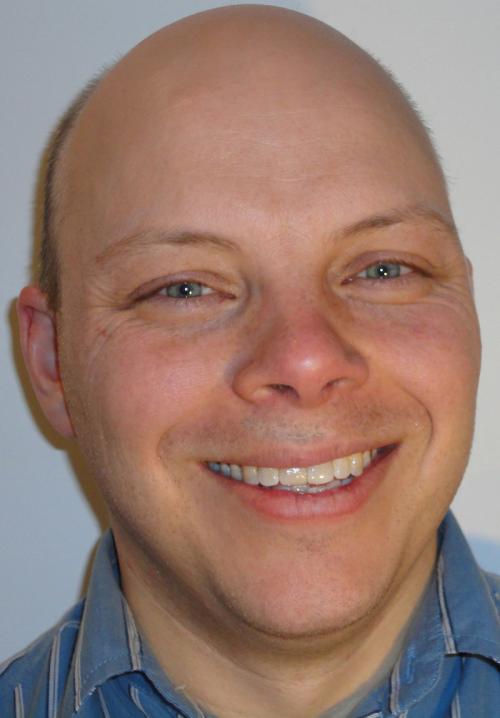
Scientist at the MRC Protein Phosphorylation Unit discovers how immune cells can be altered to help fight inflammatory diseases
Research carried out by Kris Clark in the MRC-PPU has identified a major fundamental mechanism controlling immune cell function that suggests a new approach to the development of drugs to treat inflammatory diseases. The article describing this discovery has just been published in the Proceedings of the National Academy of Sciences of the USA.
Macrophages are cells of the immune system that defend the body against infection by bacteria and viruses. However, once these invading pathogens have been destroyed, the inflammatory responses triggered by macrophages have to be stopped, to avoid the development of chronic inflammatory diseases. Macrophages also play key roles in terminating the inflammatory response by switching on the production of so-called anti-inflammatory molecules. Kris discovered that the production of anti-inflammatory molecules by macrophages is prevented by members of the SIK sub-family of protein kinases and that, by turning off the function of SIKs within the cell, he could greatly enhance the production of beneficial anti-inflammatory molecules, like Interleukin 10, while stopping the production of the molecules that promote inflammation. These studies suggest that drugs that switch off SIKs may improve current therapies for treating inflammatory diseases, such as rheumatoid arthritis and psoriasis and programmes have been initiated to try and develop such drugs.
Commenting on his findings, Kris said: "These are very exciting times! This discovery represents the first link between SIKs and inflammation. My immediate future goal is to characterize in more detail the roles that SIKs play in the immune system and how they are affected by compounds that switch off this enzyme. My studies have greatly benefitted from working in the multi-disciplinary and collegial environment that has been built up in the MRC Unit, the Scottish Institute for Cell Signalling and the College of Life Sciences at Dundee where I work. My interactions with the scientists who work here and the advice they have given me has not only been invaluable for this project, but also most enjoyable."
Macrophages are cells of the immune system that defend the body against infection by bacteria and viruses. However, once these invading pathogens have been destroyed, the inflammatory responses triggered by macrophages have to be stopped, to avoid the development of chronic inflammatory diseases. Macrophages also play key roles in terminating the inflammatory response by switching on the production of so-called anti-inflammatory molecules. Kris discovered that the production of anti-inflammatory molecules by macrophages is prevented by members of the SIK sub-family of protein kinases and that, by turning off the function of SIKs within the cell, he could greatly enhance the production of beneficial anti-inflammatory molecules, like Interleukin 10, while stopping the production of the molecules that promote inflammation. These studies suggest that drugs that switch off SIKs may improve current therapies for treating inflammatory diseases, such as rheumatoid arthritis and psoriasis and programmes have been initiated to try and develop such drugs.
Commenting on his findings, Kris said: "These are very exciting times! This discovery represents the first link between SIKs and inflammation. My immediate future goal is to characterize in more detail the roles that SIKs play in the immune system and how they are affected by compounds that switch off this enzyme. My studies have greatly benefitted from working in the multi-disciplinary and collegial environment that has been built up in the MRC Unit, the Scottish Institute for Cell Signalling and the College of Life Sciences at Dundee where I work. My interactions with the scientists who work here and the advice they have given me has not only been invaluable for this project, but also most enjoyable."

